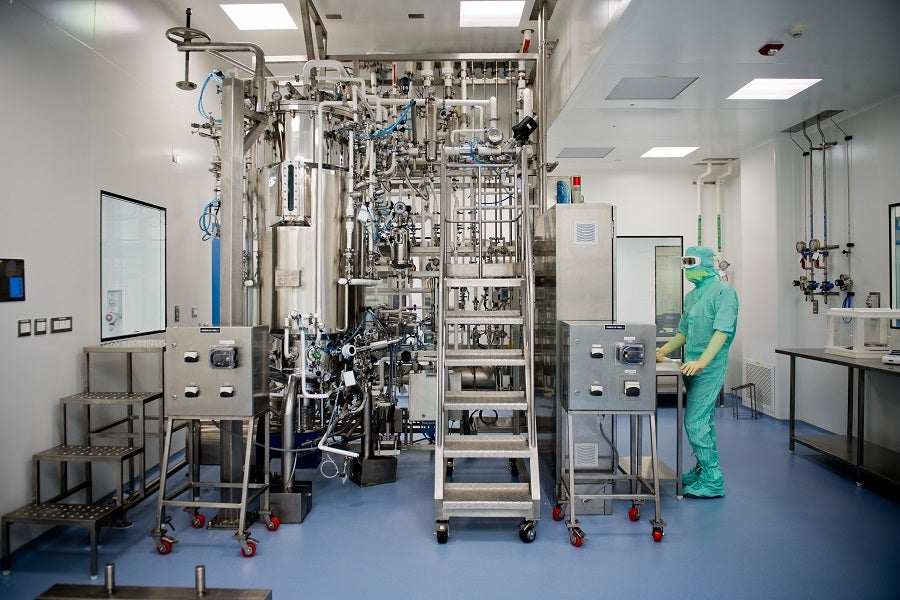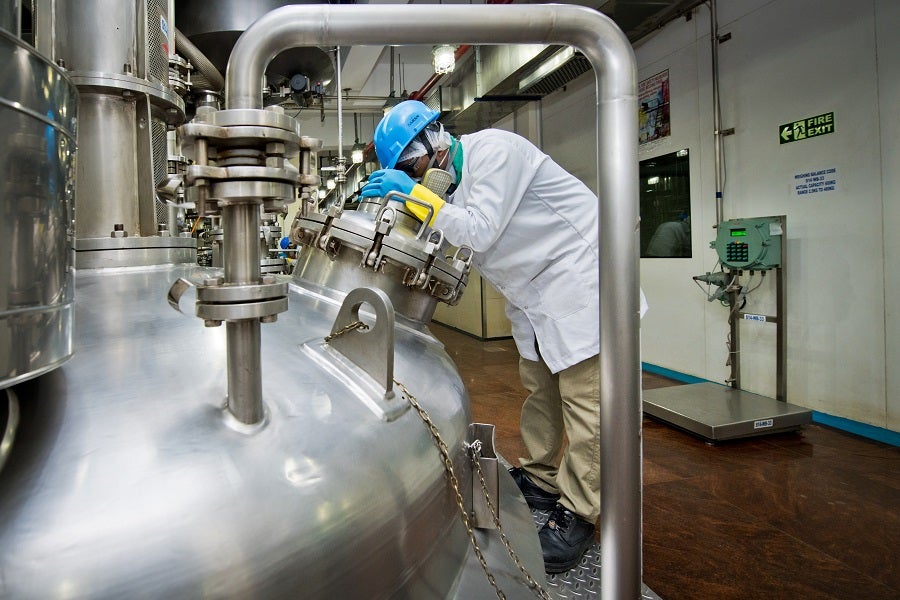
Overview
Syngene had developed a formula for a leading animal healthcare company using a multi antiparasitic drug combination to treat dogs suffering from ticks, roundworm, hookworm, pinworm and other worm infections. The client asked Syngene to develop and manufacture clinical supplies of the formulation.
Syngene successfully manufactured clinical supplies of the flavored tablets with multiple active pharmaceutical ingredients (APIs) in just six months while ensuring content uniformity and stability. We also supplied clinical batches of multiple strengths with matching placebos to the client.
The challenge
The client is a leading global animal healthcare company dedicated to innovating and delivering products and services to prevent and treat diseases in farm animals and pets.
The client approached Syngene to help them develop and manufacture clinical supplies of a formulation comprising a multi antiparasitic drug combination. The drug was for treating dogs suffering from ticks, roundworm, hookworm, pinworm and other worm infections.
The challenges were as follows:
- Incorporating multiple molecules into one formulation
- Developing and manufacturing multiple active strengths of the drug with higher drug load while ensuring minimum tablet weight for higher active strengths (~5.5g)
- Ensuring the formulation has good palatability
- Incorporating animal flavour in the formulation even though it had every possibility of triggering the degradation of one of the drugs, since the drug is highly prone to acidic degradation
- Maintaining content uniformity of the actives within each tablet
- Ensuring the solubilisation of water-insoluble drug substance with the help of solubiliser (concentrated aqueous solution of solubiliser)
- Developing the formulation without using any organic solvent

The solution
Syngene came up with different strategies to develop and stabilise the drug substance, which is sensitive to degradation during the stability period. Syngene undertook the following studies to arrive at the end product:
Drug-drug and drug-excipient compatibility studies for the following:
- Preparation of slurry in water, including overnight staging at high temperature
- Selection of functional ingredients and screening based on compatibility results
- Studying the impact of the pH of slurry on the stability of drug substances
Stressed stability studies for quick selection of prototypes
- Evaluating prototypes with different types and levels of pH modifiers to stabilise the drug substance
- Manufacturing different prototypes using different processes and studying them for drug substance stability
- Assessing different types of flavours for the formulation
Prototype evaluation for PK and palatability studies
- Developing and evaluating prototypes with different levels of flavours
- Developing and evaluating prototypes with different types of flavours
- Manufacturing prototypes using different processes
Informal stability studies using different prototypes
- Studying prototypes with different flavours, processes and levels of pH modifiers
- Finalising control strategy based on accelerated stability study data covering one month
- Conducting accelerated stability studies for six months, after which the product was found to be stable
Development of simple, robust, one-step process to include all multi-drug substances in one formulation, including scale-up
- Developing single granulation for all drug substances
- Dissolving a low dose drug in an aqueous binder solution and achieving granulation
- Adjusting the level of pH to maintain the required alkaline microenvironment in the tablet throughout the stability
- Optimising process parameters to achieve content uniformity and the desired drug release profile
- Scaling up batches manufactured at 50kg scale, including achieving reproducibility
Manufacturing of clinical batches
- Current good manufacturing practice (cGMP) manufacturing of multiple active strengths along with matching placebos
- Manufacturing blister packaged tablets staged on stability according to VICH guidelines (bracketing samples strategy)
- Analysis and validation of analytical methods

Conclusion
We successfully manufactured the drug substance containing multiple APIs, one of which is a very low dose, while ensuring content uniformity and stability in just six months. The client confirmed that the formulation had good palatability and that the in vitro drug release profile was appropriate based on PK study data. Subsequently, we supplied clinical batches of multiple active strengths with matching placebos to the client.
The case brings to the fore Syngene’s expertise in formulation services for animal health products for global clients. By outsourcing critical research and development (R&D) processes to contract development and manufacturing organisations (CDMOs) like Syngene, animal health companies can expedite their drug development programmes from preclinical to commercial at optimum costs.

